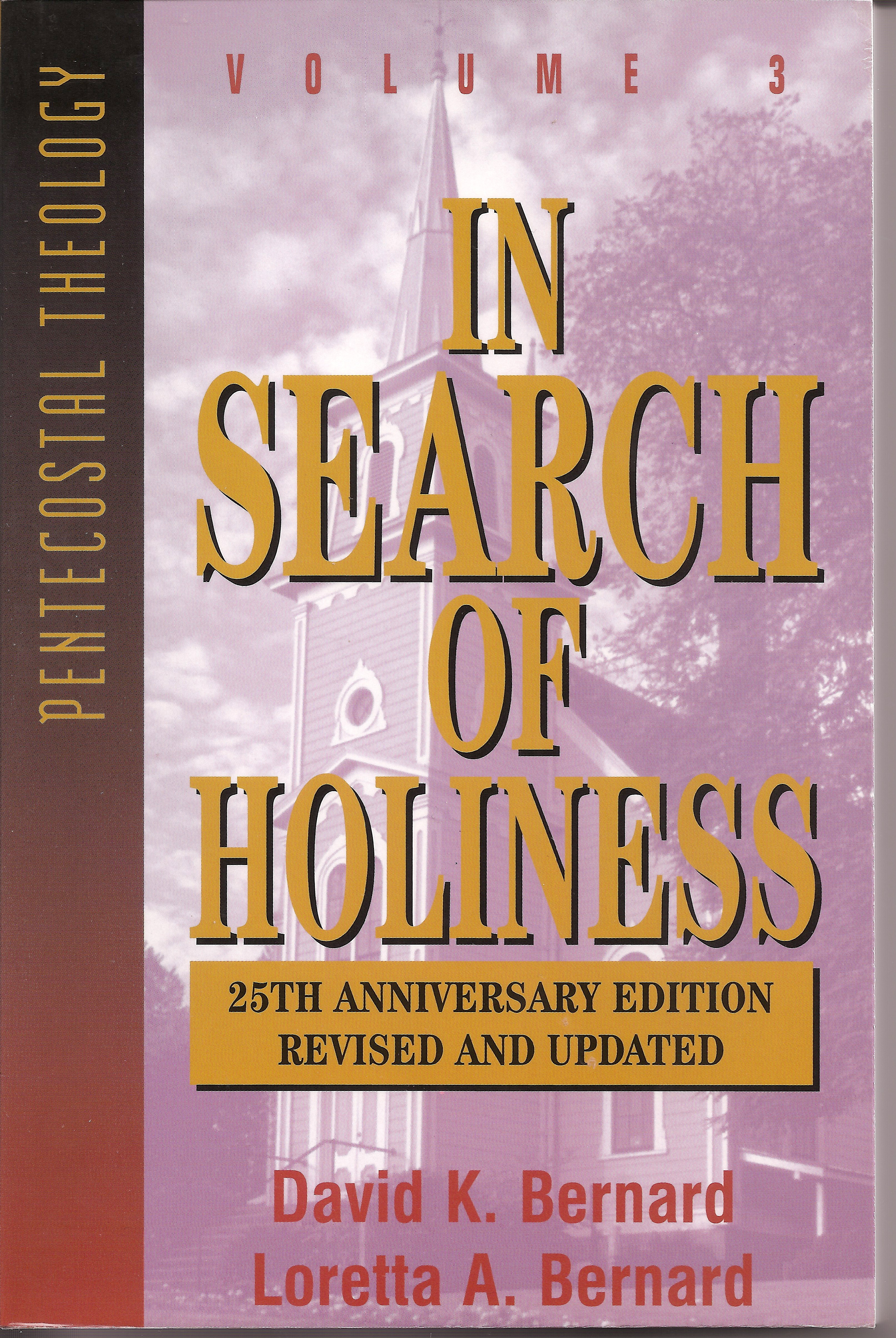
By David K. Bernard
Thou shalt not kill (Exodus 20:13).
Do not kill (Mark 10:19).
A Basic Law
One of God’s basic laws is that one person should not take the life of another person. God gave the first law against murder in Genesis 9:5-6, pronouncing judgment on all who deliberately shed human blood. The Ten Commandments include a condemnation of murder (Exodus 20:13). The New Testament reaffirms this emphasis on the sacredness of human life. Numerous passages classify murder as a sin (Matthew 15:19; Mark 7:21; Galatians 5:21).
Murder
Why is it wrong to kill another human being? First, it is a sin against God, who created humans in His own image (Genesis 9:6). It destroys God’s image creature. God has a purpose and a plan for each life. Each person is unique and fits into God’s plan in a way that no other person can. God desires the special worship that each person gives in his or her unique way. Murder deprives God of the victim’s worship and his or her part in God’s plan. Murder is also a sin against family and society. Family, friends, and loved ones are all victimized by the loss of the one who loved and supported them.
Finally, murder is a sin against the victims. It cuts them off from completing their duties to both God and humans. If they are not saved, then they have no further chance to learn about God or to repent of their sins. In this situation, the killer sends the victim into eternity without God. In short, no one has the personal authority to take someone else’s life.
The positive teaching is that we should respect all humans and seek to preserve human life. Jesus called us to a high standard of holiness, exceeding that of the Old Testament: “Ye have heard that it hath been said, An eye for an eye, and a tooth for a tooth: But I say unto you, That ye resist not evil: but whosoever shall smite thee on thy right cheek, turn to him the other also. . . . Ye have heard that it hath been said, Thou shalt love thy neighbour, and hate thine enemy. But I say unto you, Love your enemies, bless them that curse you, do good to them that hate you, and pray for them which despitefully use you, and persecute you. . . . Be ye therefore perfect, even as your Father which is in heaven is perfect” (Matthew 5:38-39, 43-44, 48).
Here Jesus taught us to put away violence, animosity, and revenge. Society has a responsibility to maintain order and promote justice. (See Romans 13:1-7.) At the same time, Christians are to act in a kind, loving way toward everyone.
Hatred
“Whosoever hateth his brother is a murderer: and ye know that no murderer hath eternal life abiding in him” (I John 3:15). Not only must we abstain from the physical act of murder, but we must not let hatred lodge in our hearts. Instead, we must resolve conflicts, get rid of grudges, and do what we can to live in peace with others. We must pray until we do not harbor malice or bitterness toward those who have wronged us. We must also oppose any form of hatred or ill will toward groups of people, such as racial prejudice.
Warfare and Self-Defense
How does the teaching of Jesus apply in times of warfare and self-defense? Society has the right to protect its citizens in these cases. Nevertheless, as Christians we do not want to kill another human being even in these situations. Instead, we pray for God’s protection and care. We rely upon God to deliver us from situations where we might feel forced to take another life, and we use prudence to avoid such situations.
In times of war, we can support our nation in a just cause through noncombatant roles and roles that help to preserve life, such as medical personnel, supply personnel, and chaplains. We believe in supporting our country and obeying governmental authority (I Peter 2:13-17). As Christians, we do not fight for an earthly kingdom (John 18:36). Our warfare is spiritual and not physical (Ephesians 6:12). When Stephen was stoned, he did not throw stones back, but he looked to Jesus and prayed for his murderers (Acts 7:55-60). When Peter tried to defend Jesus with a sword, the Lord rebuked him, ‘All they that take the sword shall perish with the sword” (Matthew 26:52).
Should Christians carry deadly weapons for self-defense? To answer this question, we should ask, What is my purpose? What would I do if I had a confrontation with someone? Would I try to kill someone? Are there any circumstances in which I would be willing to kill someone? How would I feel if killed someone?
In the Old Testament, Israel engaged in warfare against its enemies, but is this example a model for Christians today? Under the old covenant, God chose the nation of Israel as His witness to the world. Through Israel, He brought forth His Word and ultimately the Savior for the whole world. God gave the Israelites their own land in which they could live as a unique, holy people separated unto Jehovah. They were to be a light to the rest of the world, an example that would show everyone how great the God of Israel was and would encourage all nations to serve Him. Israel did not fulfill this plan completely, yet God still used Israel to bring the Messiah into the world to provide salvation for everyone.
This plan required the preservation of the nation of Israel. Some nations opposed Israel’s existence, however, and Israel’s worship of Jehovah. They jeopardized God’s promises to Israel and His plan of salvation. As a result, God commanded Israel to fight against them. Moreover, the pagans of Canaan had completely rejected God and were living in gross sinfulness. God decided that the time had come to purge the land of their abominations; the time for their judgment had arrived. God used Israel as an instrument for executing that judgment.
Today, God no longer deals primarily with nations but with individuals. The plan of salvation emphasizes individuals. “Whosoever shall call on the name of the Lord shall be saved” (Acts 2:21). God’s chosen people are not a physical nation that must fight for its natural existence and identity, but they are individuals chosen out of every nation and spiritually separated from the world.
Moreover, under the law of Moses judgment was swift and strict. Often, sinners were immediately punished by death. Under grace, judgment is deferred and mercy is extended in a much greater measure. God determines judgment on an individual basis; we do not have authority to judge anyone personally (Matthew 7:1).
Finally, under the new covenant, we are called to a higher standard of personal holiness. The words of Jesus urge us to turn away from violence, retaliation, and revenge. Through the baptism of the Holy Spirit we receive power to fulfill this teaching in a way that Old Testament believers could not.
In the second and third centuries, Christians avoided the violence that was so prevalent in pagan society. Roland Bainton, a Yale University historian, stated:
Gladiatorial combats were condemned and the Christians could not witness them. Christians could assume no magisterial post that carried with it the possibility of passing a sentence of death. . . . Military service was allowed but warfare rejected. This appears in the Canons of Hippolytus who said that a Christian might be a soldier provided he did not kill. [1]
For further discussion of these teachings in church history and today, see David K. Bernard, Practical Holiness: A Second Look.
Abortion
Unborn children in the womb of their mothers are humans created in God’s image. Therefore, it is a sin to take their lives. (See Genesis 9:5-6.) At conception, the sperm and the ovum unite to form a living, growing organism that science identifies as human. By the third week, the heart begins beating, and the brain begins to send impulses throughout the body.[2] Within a month after conception—that is, by the time the mother knows she is pregnant—it is possible to distinguish the baby’s eyes, feet, and head.
Unborn babies are living souls. We cannot identify any time after conception when they suddenly become human or become living souls, yet in the U.S. and most of the world unborn babies can be legally killed in the womb up to the very moment of delivery. If they become souls only after nine months, then what about premature babies? If they become souls only when they leave the womb, what about test-tube babies conceived outside the womb? If they become souls only after viability (when they become able of surviving outside the womb), then what about the medical advances that have dramatically increased the survival rates of babies born extremely premature? Does a baby’s humanity depend on the state of available technology?
The Bible indicates that God considers a child in the womb to be a human in every sense of the word. God sanctified, or set apart, Jeremiah for a particular purpose while he was still in his mother’s womb (Jeremiah 1:5). David stated that the Lord was his God from his mother’s womb (Psalm 22:10). He also acknowledged that he acquired a sinful human nature at conception (Psalm 51:5).
To purposely abort a child means to kill that child. What is the difference between killing a child in the womb and killing a premature baby who is born at the same stage of development? Is one human but not the other? Is one a living soul but not the other? We have no scriptural authority for drawing an arbitrary line after conception. We are playing God if we decide that one is a human being and the other is not, or that one deserves to live and the other does not.
Pregnancy is procreation. It is God’s means of creating a new human being in conjunction with the mother and father. Once pregnancy begins, the decision is out of human hands. God’s purpose, the sanctity of human life, and the unborn child’s right to live, take precedence over the wishes and convenience of the parents.
A miscarriage, also called a spontaneous abortion, is nature’s way of dealing with a nonviable fetus. A deliberate abortion, however, is human intervention in an attempt to play God.
Contraception (prevention of conception) is acceptable since it does not involve destroying an individual that has already been conceived. After a human being comes into existence, however, the time for deciding whether to have a child has passed.
In cases of imminent danger to the mother’s life, a decision can be made to deliver a child early with the goal of preserving both lives if possible. If nothing is done, both mother and child will die, so in this case there is no wrongful intent to kill the baby. At the same time, we should remember that God is a healer. Righteous women should claim God’s promise to bring salvation (deliverance, protection) in childbearing. (See I Timothy 2:15.)
Abortion, the Bible, and the Christian by Donald Shoemaker discusses the lack of justification for abortion when there is economic hardship, social hardship, a possibility of mental or physical birth defects, a maternal psychiatric problem, rape, or incest.[3] In the case of rape or incest, it is possible to take some immediate actions to prevent conception.
In sum, we do not have the right to take the life of a defenseless human being because of a mistake made by someone else. Moreover, if abortion were morally justifiable for whatever reasons, what would prevent us from killing the newborn infant, the mentally handicapped, the physically handicapped, the orphan, or the aged for the same reasons?
Suicide
Suicide is also contrary to the Word of God, as it takes the life of someone who is created in the image of God. No human has the authority to take away the life that God has given him or her. As Christians we should not consider suicide to be an option but a sin. When suicide does take place, however, we should respond pastorally with compassion for the surviving family, recognizing that God is merciful. Perhaps the suicide victim was not in his or her right mind and so would not be fully accountable.
When problems seem to overwhelm us so that suicide might be a temptation, we need to turn to God for strength. The Holy Spirit will give us joy and peace (Romans 14:17; Galatians 5:22). Through prayer, fasting, and faithful endurance we can receive answers to difficult problems. God has promised never to allow us to be tempted beyond what we can bear, and He has promised always to make a way of escape for us (I Corinthians 10:13).
Suicide is an attempt to evade problems and responsibilities, but it actually offers no escape, because everyone will face reality on judgment day. If we do not resolve our problems and temptations in this life, then we will have no other chance to do so, but we will face the consequences in eternity. Suicide does not allow God to work in the situation and does not allow God’s purpose to be fulfilled.
Conclusion
God has created every human in His image and has given each one a purpose in life. As Christians, we should not seek to take away a human life that God has granted.
Notes
[1] Roland Bainton, Early Christianity (Princeton, NJ: Van Nostrand, 1960), 50, 54.
[2] Gary Bergel with C. Everett Koop, Abortion in America and When You Were Formed in Secret (Elyria, Ohio: Intercessors for America, 1980).
[3] Donald Shoemaker, Abortion, the Bible, and the Christian (Grand Rapids: Baker, 1977).
This article “Abstaining from Bloodshed” was excerpted from: In Search of Holiness, written by David K. Bernard. It may be used for study & research purposes only.




1 thought on “Abstaining from Bloodshed (Entire Article)”
Comments are closed.